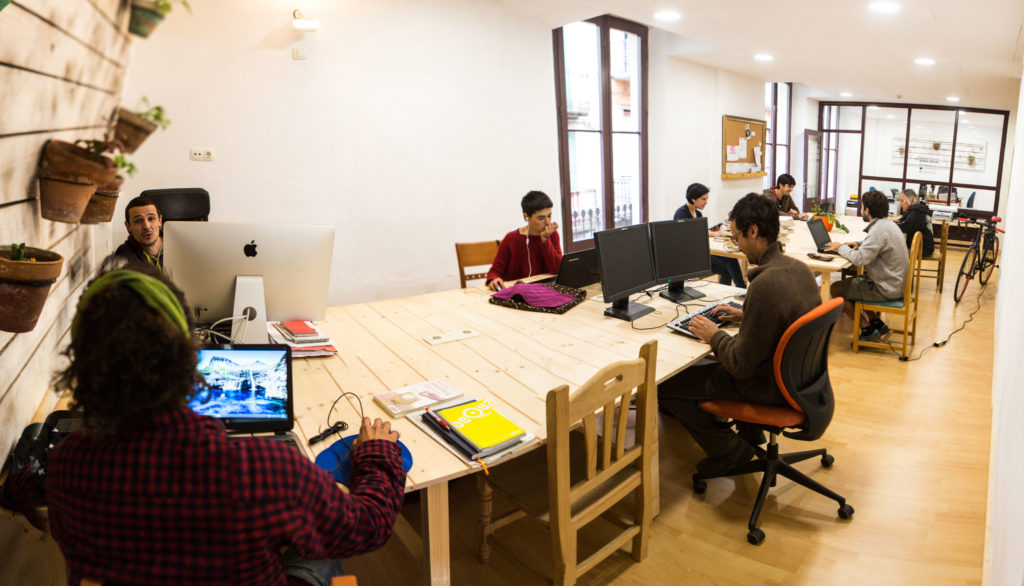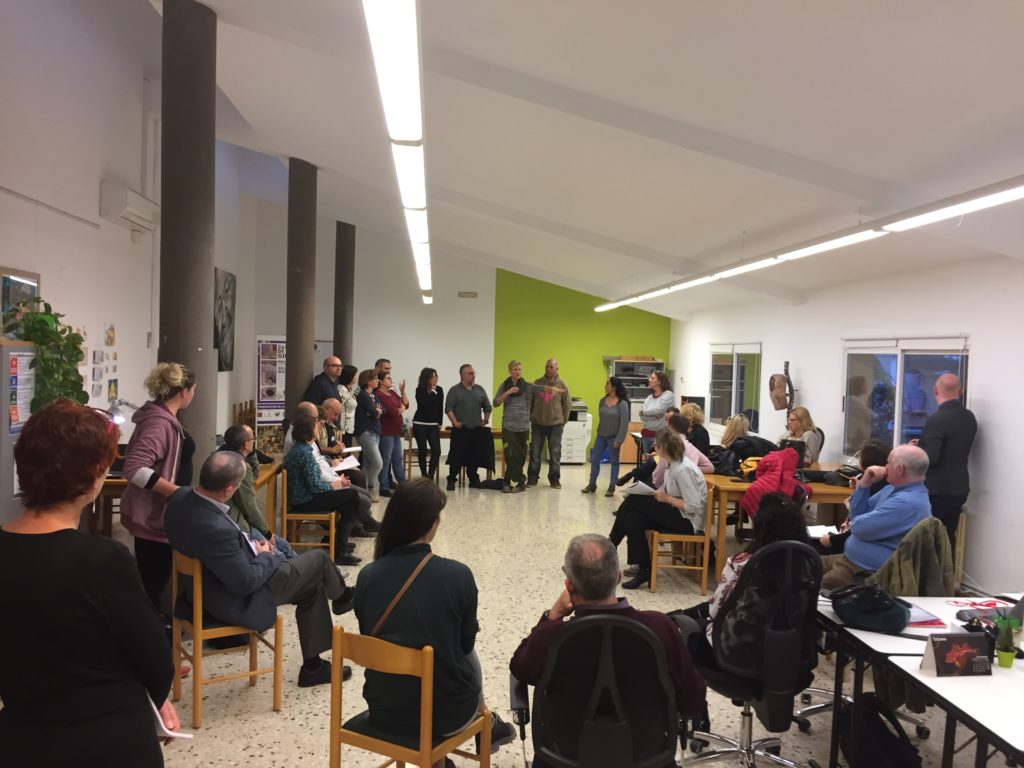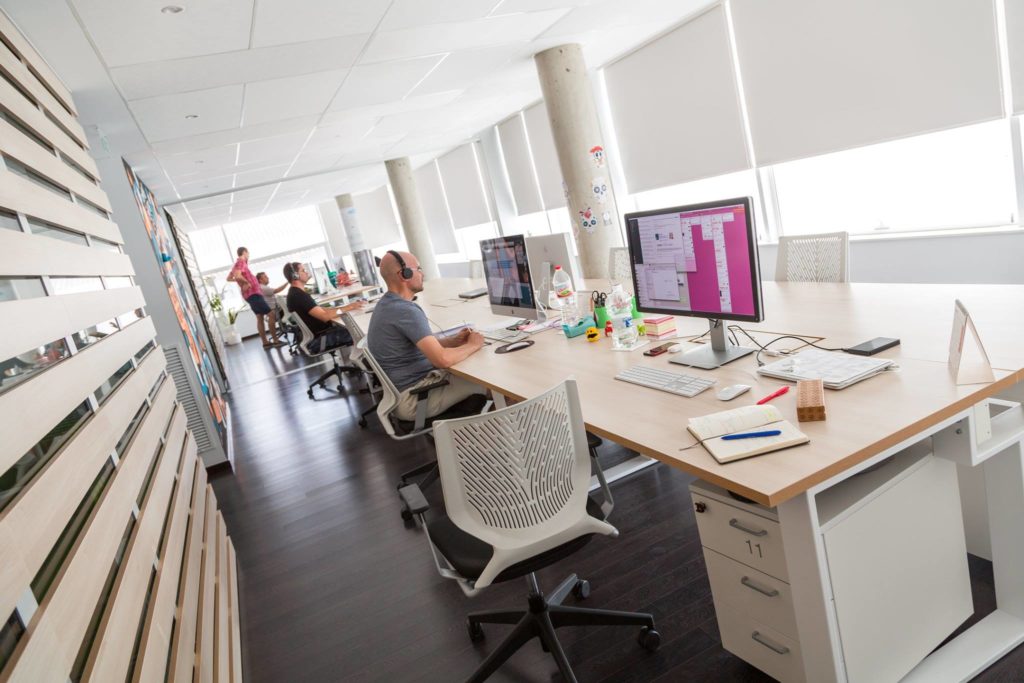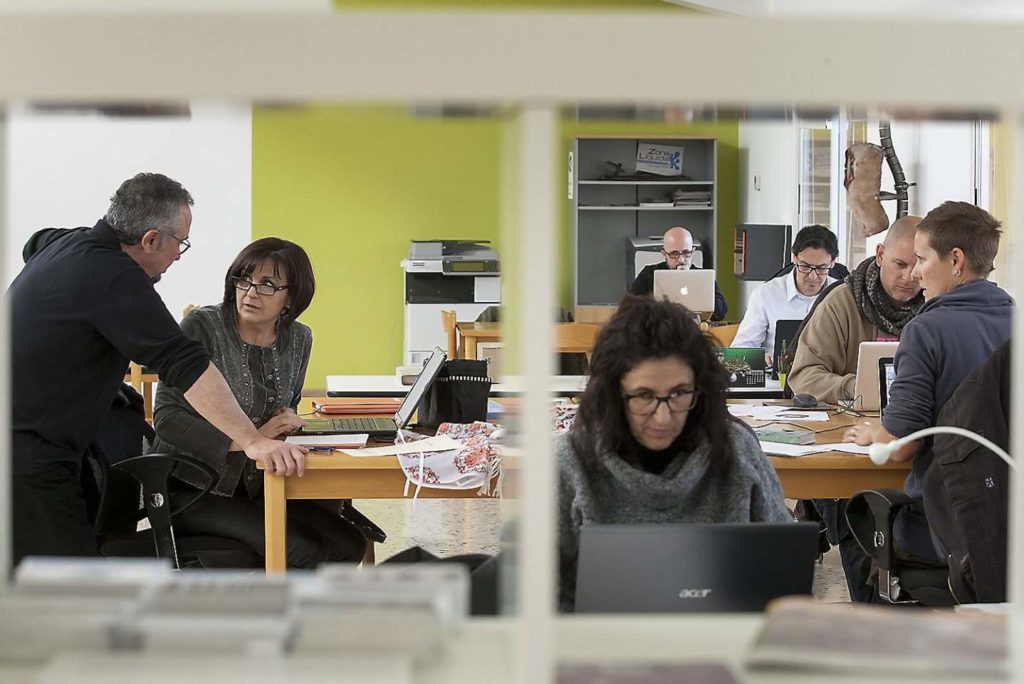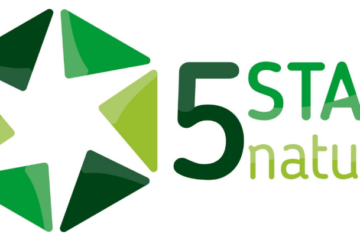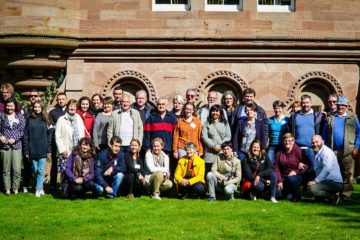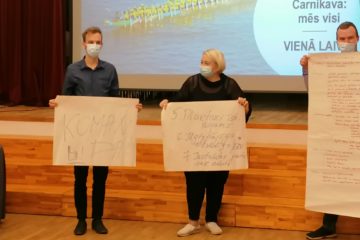Cowocat_Rural
Project n°10
INTRODUCTION
Cowocat_Rural is a LEADER cooperation project leaded by Consorci Intercomarcal d’Iniciatives Socioeconòmiques (GAL Ribera d’Ebre – Terra Alta) which arises from the possibility to transfer the rural coworking pilot experience born in 2014 in Riba-roja d’Ebre (Zona Líquida) to other rural areas in Catalonia, Spain.
Following this experience, eleven Catalonian LAGs launched a continuation inter-territorial cooperation project to create and expand a network of coworking spaces. Cowocat_Rural promoters thought that rural coworking spaces could stimulate economic activity and help maintain the population in rural areas where abandonment is a real threat. This offers opportunities for professionals who want to work in a collaborative space without the need to move away from a rural environment. From 2014 to 2024, 46 coworking spaces in rural Catalonia have joined the Cowocat_Rural network, which means more than 300 professionals linked to these coworking spaces. Beyond these numbers there are also small success stories like families staying in a rural area for a long holiday while a parent had to connect to their work via a coworking space.
PRESENTATION OF THE PROJECT
Coworking is a way of working that allows independent professionals, entrepreneurs and SMEs from different sectors to share the same physical and virtual workspace. In most European cities, coworking spaces are increasingly popular, the same happens in Barcelona where the COWOCAT association was put in place to connect these urban spaces. However, coworking spaces were not so common in rural territories, or they were not until a few years ago. Cowocat_Rural tries to transfer the pioneering experience of coworking to rural areas in Catalonia. In fact, the project was born in 2014 from Zona Líquida pilot experience, a coworking space settled in Riba-roja d’Ebre, a municipality of just over a thousand inhabitants in the south of Catalonia. The project promoter is the LAG Consorci Intercomarcal d’Iniciatives Socioeconòmiques and counts with ten Catalonian LAGs as participants. At the origin the project counted with the support of several strategic partners, which put their experience at the service of its conceptual and territorial development. These partners were COWOCAT, Associació Coworking de Catalunya; Secretaria de Telecomunicacions, Ciberseguretat i Societat Digital of the Departament de Polítiques Digitals i Administració Pública of the Generalitat de Catalunya; Research Group Collaborative Spaces, and PIMEC Joves. Cowocat_Rural was part of “CoLabora, European cooperation project on coworking spaces in rural areas” between 2018 and 2022. It is a project in which cooperated seven European LAG, including the Consorci Intercomarcal d’Iniciatives Socioeconòmiques Ribera d’Ebre – Terra Alta and other six LAG from Latvia, Germany, Ireland, France, Wales and the GAL Pays de Guéret (France) which was the coordinator. There is a determined interest in repeating this collaboration soon.
Cowocat_Rural works to create economic activity, attract young skilled professionals to rural areas and to tackle outmigration, through promoting the values of coworking. Its concept is based on the need to promote entrepreneurship through information and communication technologies. It has developed a methodology for setting up and supporting a network of coworking spaces and it advocates coworking among professional and local actors who might be interested in joining the network. Since the beginning of Cowocat_Rural, participating LAGs have supported the creation of new coworking initiatives. Nowadays there exist 46 coworking spaces in rural areas in Catalonia. Some of the main actions developed in the project are: design a digital platform to encourage networking; offer technical advice on the creation of spaces; create the figure of a ‘territorial animator’; encourage the Observatory of Catalan rural coworking or organise networking and meeting sessions. Finally, it is important to underline three initiatives: first, RuralPass, a passport that allows rural and urban coworkers to work three-day a quarter in any space of Cowocat_Rural network or in one of the urban friend spaces; second, Coworkfest, the rural coworking festival of Catalonia which program dozens of simultaneous activities in a week to create awareness about the social, cultural and economic dynamization that generate coworking spaces, and the third one that nowadays is not active is Rural&Go, that were getaways that combined training, the discovery of coworking spaces and cultural activities in rural areas.
PRINCIPAL OBJECTIVES
In 2014, eleven LAGs launched a new inter-territorial cooperation pilot project called Cowocat_Rural. It was born from a pilot project to set up coworking spaces in Catalonia rural areas. The project aimed to generate employment in rural areas by offering new opportunities to professionals and entrepreneurs that can be attracted by the better quality of life and reduced living costs of these territories. More specific objectives of the project include:
1. Spreading and developing the coworking network as a new way of working through ICT in rural areas.
2. Attracting talent and maintaining (or increasing) the population in the rural areas.
3. Raising awareness and creating synergies with other territories.
THE ADDED VALUE OF THE PROJECT
Main results are the incorporation of 46 coworking spaces in the Cowocat_Rural network from 2014 to 2024, which means more than 300 professionals.
The key lessons of these ten years of project development are:
- Coworking in rural areas is an innovative concept that can potentially do a lot to encourage and enable people to live in these territories.
- Coworking offers an attractive life option to high school and university students that would like to live in rural areas.
- Even small successes in enabling individuals and families to spend more time in a rural area can have a positive impact on the local economy.
- The fact of being a pioneering project implies the need to generate knowledge based on own experience.
- It is useful to network and exchange with similar European initiatives to discuss common challenges and solutions and look for entrepreneurial opportunities.
- Coworking spaces depend on high-speed broadband, and other basic services.
- One of the most interesting findings is that it is more important to have motivated professionals than having an available space.
Cowocat_Rural shares the LEADER approach which is based on seven specific features: Bottom-up approach, area-based approach, local partnership, an integrated and multi-sectoral strategy, networking, innovation and cooperation. These seven features define LEADER, and as well are the foundations of Cowocat_Rural.
First, networking, innovation and cooperation are at the heart of the spirit of the project, they are the three main pillars on which it is supported. Second, his methodology conceives local people as the experts to drive the territory development and it understands the area as a whole. That is why the project develops a single strategy that is at the same time comprehensive. Third, beneficiary people of the project (mainly coworkers) become active partners and drivers of it. Moreover, coworking is a multi-sectorial strategy development that explores the needs and impulse of the opportunities of each rural area. Regarding sustainability, Cowocat_Rural was created with the aim to become durable and sustainable over time. That is why it took advantage of the experience and know-how of several agents in its beginning.
Also, the positive evolution of the number of coworking spaces and their collaborative communities are good indicators of its sustainability.
Finally, about the transnational impact Cowocat_Rural has been selected as one of the 5 finalists in the Rural Dynamization category at the Rural Inspiration Awards of the European Network for Rural Development (ENRD, Brussels 2019). As well it was selected as one of the 40 best examples of rural development in the Post-2020: Local Action in a Changing World conference (Brussels, 2020) by ENRD and Red Rural Nacional (RRN). Also, the project was invited to participate in the transnational European cooperation project CoLabora because of its knowledge and expertise in coworking spaces in rural areas, and had participated actively in Smart Villages seminary (ENRD, Brussels 2018) as an example of innovation and digitalization in rural territories. Finally, the project has been an inspiration and has contributed to the creation process of rural coworking networks, such as COWOCYL.
